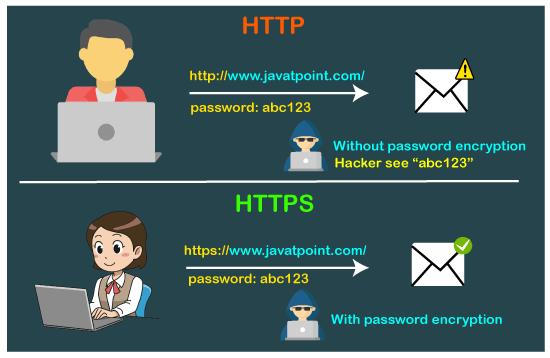With cybercrime on the rise in India, the need for installing cyber security systems is also high. For instance, in 2016, a cyber breach rattled the financial security of Indian banks. It had the potential of compromising the safety of 32 lakh debit cards across 19 banks including SBI, Axis Bank, HDFC, ICICI, and BoB.
Apparently, hackers had introduced malware in the payment system of Hitachi Payment Services, which was active for over six weeks before getting detected. It is in this context that the conflict between HTTP and HTTPS connections arises.
HTTP And HTTPS
Standing for Hypertext Transfer Protocol, HTTP is the application portal through which all data and information travel on the World Wide Web. It establishes the rules of communication between web browsers and web servers. HTTPS or Hypertext Transfer Protocol Secure is an updated version of HTTP while functioning in the same way.
So where can we draw the line between the two protocols? Security can be a good place.
Drawing A Line
An HTTP connection is gullible to attacks by hackers who can modify, monitor, and mimic it. On the other hand, an HTTPS connection uses encryption weapons like Transport Layer Security (TLS)/ Security Sockets Layer (SSL) to give an edge of protection to all your web business.
A web browser and a web server do a “handshake” or an exchange of TLS/SSL certificates. The server’s identity is proved and the browser’s personal information is safe.
Read More: ResearchED: What Laws Govern Tapping A Phone? What Are The Checks In Place?
HTTPS encrypts all communications over the web. Hence, even if your private information is intercepted by a cybercriminal, it will appear as gibberish or garbled data. Such data can be revealed only by the decryption tool or the private key, which is controlled and maintained by the website owner.
On an HTTP platform, all data shared remains prone to “eavesdropping” or “sniffing” by any criminal actor on the network. Such a risk increases if a user is accessing a website via an insecure network, like public Wi-Fi.
Additionally, the plain-text character of HTTP connections invites Man-in-the-Middle (MitM) attacks. In contrast, HTTPS uses an encryption protocol that shields communications between two parties.
The necessity of HTTPS has been upheld by Google which endorsed it as a standard requirement for progressive web applications. “The future of the web is secure”, and hence HTTPS “should be on the roadmap” of any organization, as per Thao Tran, Director of Global Partnerships at Google stated.
Besides the risk of leaking private information, an HTTP website can face “DNS spoofing”. Bad actors can distort an IP address and thereby mislead browsers into a completely different and potentially harmful website. In contrast, HTTPS ensures access to a genuine website.
Here’s a simple demonstration of how HTTPS works securely.
You want to buy a T-shirt from a popular online shopping website. The URL of the website page would start with https:// and not http://. When you find the perfect summer T-shirt, you proceed to place your order. You enter some personal and financial data, which is immediately encrypted.
As the order reaches the server, they send an acknowledgment to your end, which also travels in encrypted form. Hence your shopping experience continues smoothly, safe from cyber attacks.
So cyber threats are reduced to a minimum when HTTPS connections are used, in contrast to HTTP which compromises one’s safety on the web.
Disclaimer: This article is fact-checked
Sources: First Post, Tech Target, Guru99.com
Image sources: Google Images
Find The Blogger: @shoomedha
This post is tagged under: technology, cybercrime, http, https, computer safety, privacy, security, digital security, world wide web, internet, web crime, confidentiality, digital risks, HTTP, operating internet, hacking, secure network, should i use HTTP or https, how to protect myself from hacking, best way to protect privacy on internet
We do not hold any right over any of the images used, these have been taken from Google. In case of credits or removal, the owner may kindly mail us.
Other Recommendations:
FlippED: Has The World Become More Dangerous Now, Compared To The Past?






































